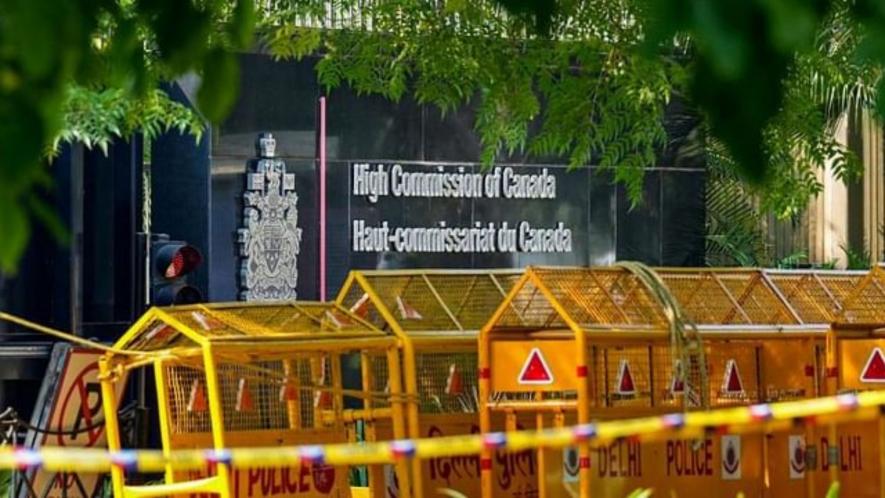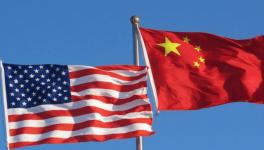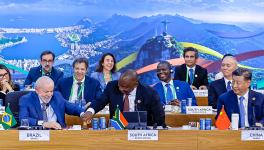India’s Canadian Riddle – To be, or not to be

The special session of Parliament has let External Affairs Minister S. Jaishankar off the hook. He skipped the BRICS foreign ministers meeting on the margins of the 78th Session of the United Nations General Assembly in New York on September 20. BRICS is becoming an albatross that prevents the Narendra Modi government from leading a normal and happy life.
The timing of the Canadian assault on the Indian foreign and security policy establishment over the killing of Hardeep Singh Nijjar is not in doubt. It surged in the aftermath of the G20 summit, which witnessed a crushing diplomatic defeat for the US in front of the world community, where the host country India navigated skilfully to scuttle any negative reference to Russia in the event’s final document.
The Nijjar affair can be metaphorically called the grapes of wrath. The liberal Western world so far granted Modi government a free passage through their rules-based order. India could preach but wasn’t accountable for its own practice. All good things come to an end.
Canada has a record of acting as a surrogate of the US. The strange case of Huawei’s board deputy chair Meng Wanzhou at Vancouver Airport on December 1, 2018 comes to mind. The billionaire-heiress was rudely arrested on a provisional US extradition request for fraud and conspiracy to commit fraud.
But in August 2021, the extradition judge questioned the regularity of the case and expressed “great difficulty in understanding” how the Record of Case presented by the USG supported its allegation of criminality. And on September 24, 2021, the US Department of Justice reached a deal. On December 1, 2022, the presiding judge dismissed the charges against Meng following a US request.
As regards the Nijjar file, a Canadian official familiar with the matter told Associated Press on Thursday that Prime Minister Justin Trudeau’s allegation against the Modi government was based on surveillance of Indian diplomats in Canada, including intelligence provided by a “major ally” who is a member of the infamous Five Eyes, the secretive intelligence network of Anglo-Saxon countries —- Australia, Britain, Canada, New Zealand and the US.
Interestingly, Britain scrambled to distance itself from Trudeau’s tirade, while a Canadian source told Reuters that Canberra and Washington collaborated “very closely” to examine evidence indicating potential Indian involvement in Nijjar’s killing.
Trudeau spoke in the Canadian parliament after consultations with President Biden, and the White House reaction on the same day was highly supportive. The White House National Security Council spokesperson Adrienne Watson said, “We are deeply concerned about the allegations referenced by Prime Minister Trudeau. We remain in regular contact with our Canadian partners. It is critical that Canada’s investigation proceed and the perpetrators be brought to justice.”
Watson works under NSA Jake Sullivan who reports directly to Biden. It is unlikely that Sullivan made this a personal issue with the Indian security establishment. Simply put, the buck stops at the Oval Office.
Indeed, after Watson’s initial remark, the White House quickly switched to megaphone diplomacy with its high-flying strategic communications chief John Kirby, a retired rear admiral, confirming for record that Biden is “mindful of the serious allegations” by Trudeau “and they are very serious…and we support Canada’s efforts to investigate this. We believe a fully transparent, comprehensive investigation is the right approach so that we can all know exactly what happened, and of course we encourage India to cooperate with that.”
Asked if the US, as a Five Eyes intelligence sharing partner of Canada, knew what the allegations were based on, Kirby demurred, saying he wanted to respect the sanctity of the investigation. In terms of the fallout if the allegations were true, Kirby said once the facts were available, “you can start to look at recommendations or behaviours you might want to pursue”. He all but hinted that the Canadian allegation is not baseless.
Meanwhile, on Wednesday, the White House defended its approach, with Watson responding to a Washington Post remark on social media platform X (formerly Twitter), by denying that the US had snubbed Canada over the incident. “Reports that we rebuffed Canada in any way on this are flatly false,” Watson wrote, adding that the US and Canada were coordinating closely on the issue.
She added, “This is a serious matter and we support Canada’s ongoing law enforcement efforts. We are also engaging the Indian government.” She was countering suggestions that Washington was rebuffing Ottawa, because it had to court India as a counterweight to China.
Such gratuitous lecturing is sheer hypocrisy by a country that freely resorts to assassination as a tool in its foreign policy. Who killed Qassem Soleimani?
Alas, in the face of this bullying, Delhi’s reaction has been pusillanimous, to say the least — as if it is stone deaf and couldn’t hear what the White House officials were saying. Instead, the spin doctors barked up the wrong tree to lampoon Canada for its “gang wars”, et al. It seems the government knew all about Trudeau’s strange behaviour while in Delhi for the G-20 summit, and had a road map ready with Indian signposts.
Why such pusillanimity? It only creates misperceptions. One would like to believe that India, with high values in global governance and deep respect for national sovereignty — apart from being the flag carrier of the concept of Vasudhaiva Kutumbakam (‘The World is One Family’) — would never descend to such a heinous level as to practice murder in its statecraft.
The US typically uses such tendentious issues to frighten and blackmail feeble-minded interlocutors in the “Third World.” That is why, Jaishankar shouldn’t have downgraded India’s representation at the BRICS foreign ministers’ meeting. These are extraordinary times when if India didn’t have a BRICS membership, there is need for one.
Indeed, the BRICS statement after the New York meeting stated: “The Ministers reiterated concern about the use of unilateral coercive measures which are incompatible with the Principles of the UN Charter and produce negative effects notably in the developing world. They reiterated their commitment to enhancing and improving global governance by promoting a more agile, effective, efficient, representative, democratic and accountable international and multilateral system and to facilitate greater and more meaningful participation of developing and least developed countries…”
The bottom line is, the government should strategise through its present predicament. After all, as a key member of the Western alliance and a close ally of the US, Canada plays an important role for the US in establishing a so-called rules-based international order and promoting the Indo-Pacific Strategy. And “rules-based order” and Indo-Pacific Strategy are Indian mantras too.
Biden himself may come under cloud very soon and be battling for his political career. Inviting him to be the chief guest at the Republic Day with an additional frill thrown in by way of a QUAD summit to placate him is pointless. Once the Canadian investigation runs its course, Ottawa may put on the public domain further accusations passing for “evidence” — and that could happen at some point closer to our general election. All in all, the big question is, what is it that the US is really up to.
MK Bhadrakumar is a former diplomat. He was India’s ambassador to Uzbekistan and Turkey. The views are personal.
Get the latest reports & analysis with people's perspective on Protests, movements & deep analytical videos, discussions of the current affairs in your Telegram app. Subscribe to NewsClick's Telegram channel & get Real-Time updates on stories, as they get published on our website.






















